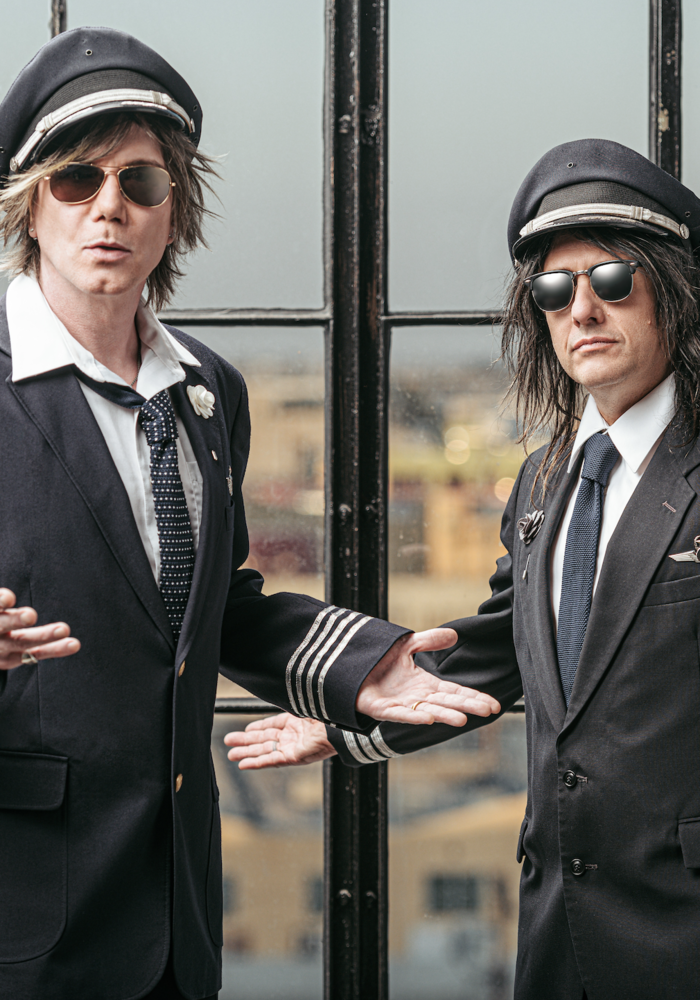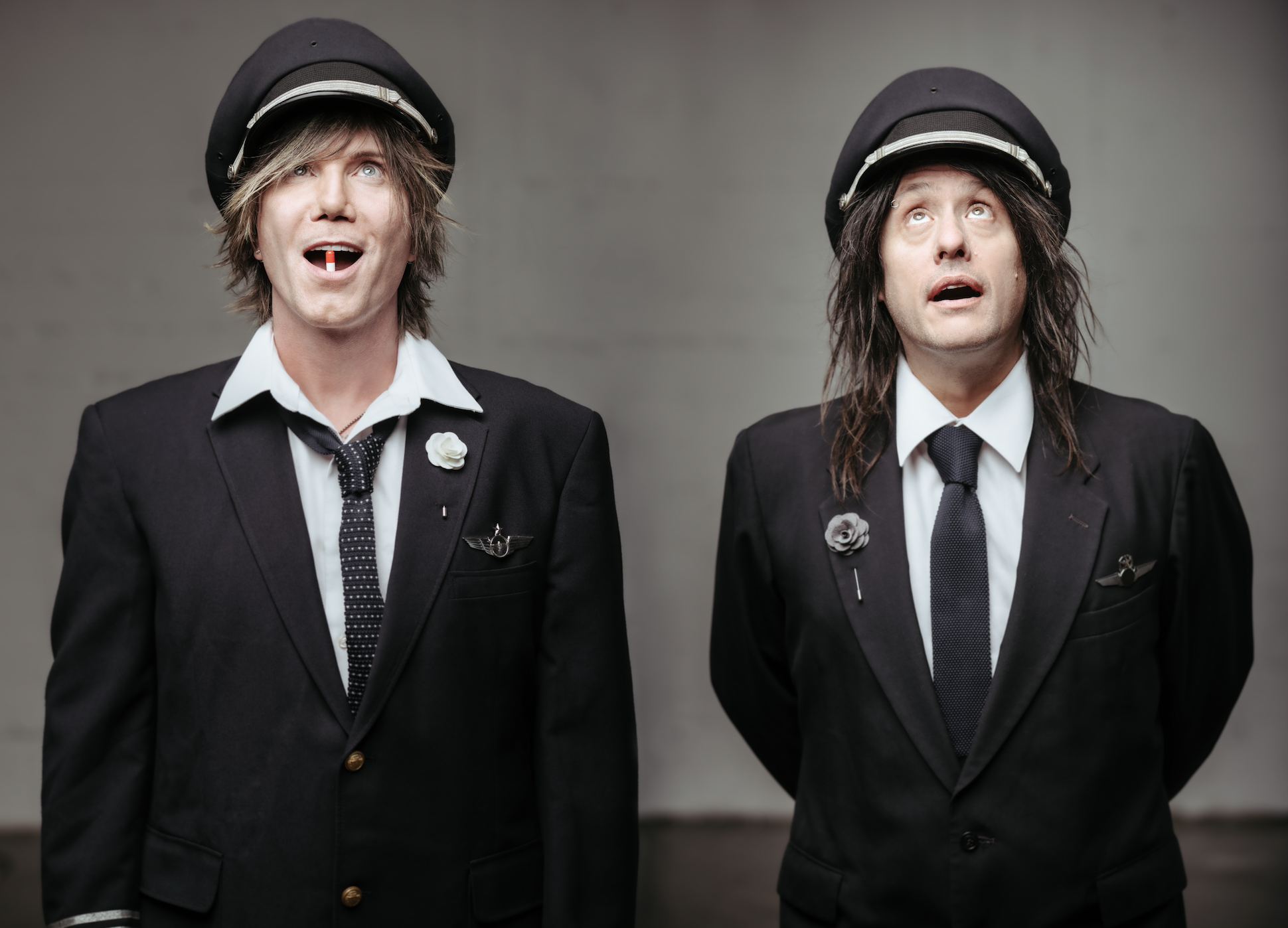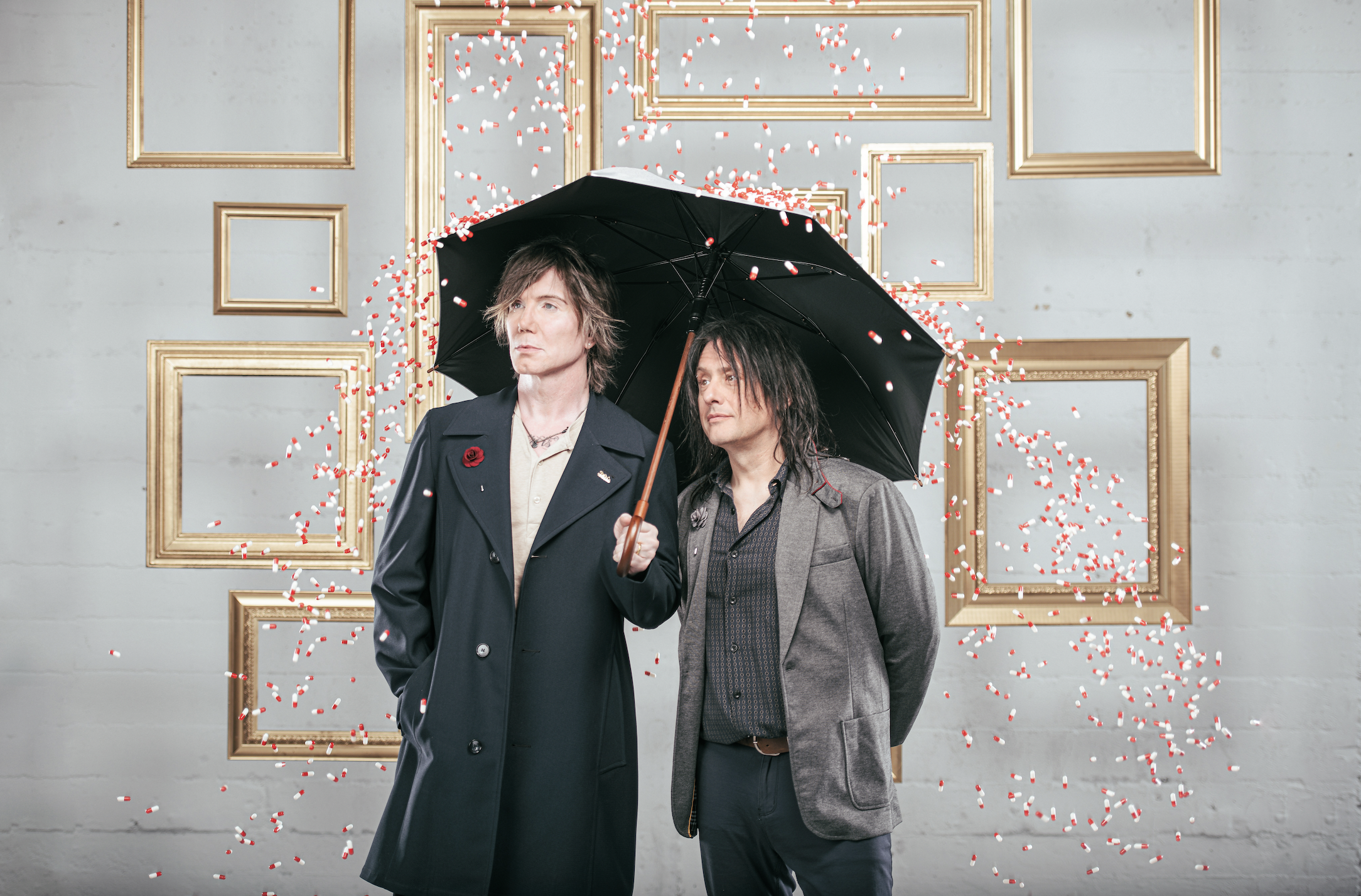Headliner finds Goo Goo Dolls’ creative driving force and songwriting duo, Robby Takac and John Rzeznik in a contemplative mood when we reach them over separate calls to discuss their new rarities collection. Fittingly entitled Rarities and spanning the first 12 of the band’s 30 years (and counting) career, this new compilation is a veritable treasure trove for fans of the band, featuring previously unheard studio outtakes, covers and live performances from 1995-2007. It is not Rarities alone, however, that has prompted the pair to take a rare backwards glance at their time together. Currently working on a new studio record, Takac and Rzeznik have taken something of an artistic sojourn, both literal and figurative, to the place where it all began for them more than three decades ago…
We are joined first by bassist and vocalist Takac, who calls us from the studio in which the band wrote and recorded some of their earliest material. Located in the Buffalo woods, he describes it as an idyllic retreat for the band, who have decided to return to their roots for what will be their next album, eschewing the trappings of the city to focus solely on making music and recapturing some of the spirit that shaped their formative recordings.
“It’s been cool, but I’ve never felt more like a city boy in my life,” Takac laughs with an easy charm, his voice possessed of the kind of weathered, road-worn drawl that only 30 years of rock stardom can provide. “We were sleeping in an old church, the walls were full of interesting things that made noise during the night, there were some animals mangled by hawks left on our porch, deer running through the yard... It was amazing but our band hasn’t been sequestered like that, doing nothing but making a record, for an awful long time. It brings you back to that place when you’re just getting started, when we had nothing else going on. All we had was making music. It’s been decades since then and our lives have progressed in a lot of ways, so it’s great to alleviate as much of the distraction as you can.”
Vocalist and guitarist, Rzeznik, concurs on the subject when Headliner speaks to him a few days later. Like his cohort, his is a voice that bears the excesses of a three-decade career, albeit with a tone that floats somewhere between dreamy and meditative.
“We went back to the original process,” he explains, elaborating on the decision to adopt a more traditional approach in the studio. “It was really fun and that is how you get to the core of a song, I truly believe that. That said, it’s a bigger pain in the ass than sitting around in these nice, tight writing sessions, but the music has to have some grease – I call it grease – on it, and it has to have some soul to it. You have to get to the heart of what you’re doing. When you bring a piece of music into a bunch of guys, you’re sharing a really vulnerable moment with those people; I’m scanning the room looking for turned up lips and rolling eyes. But it’s really fun, getting the feedback from the other guys, or hearing a mistake and going, ‘Robby, what the hell did you just play? That was awesome’!”
Rzeznik also offers some insight into the technical crossover of old and new methods that underpins the band’s upcoming material.
“The recording process itself was a hybrid of digital and analog, but mostly analog,” he continues. ”I wanted to record the album in analog, not because it sounds so much better than digital – which it does, but let’s not go down that rabbit hole! – but because I wanted to limit the number of tracks that we had. I wanted to be able to make decisions. The biggest thing when we started recording digitally was going from having 48 tracks or 24 tracks to having 125 or 300 tracks, so you get these songs that are dense bricks of music and they lack nuance. I may have 17 guitar parts that I think are all really cool but we have to get rid of 15 of them. That loaned itself to a much more open-sounding record. There is a dynamic and breath on the album, which is exciting to me.”





